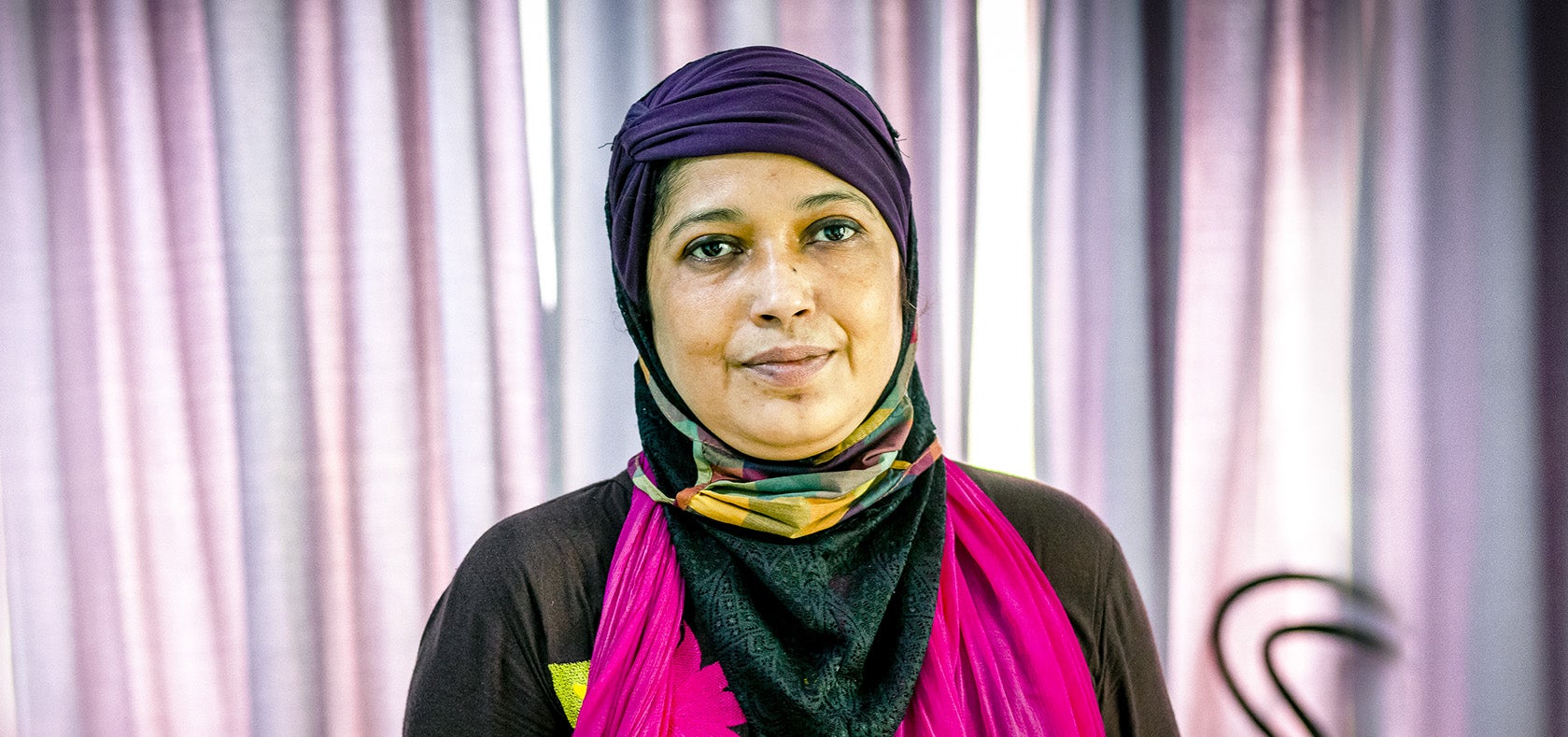In the Words of: Nazlee Nipa “Happy moments for me is when we turn sad faces into happy ones”
In Dhaka, Bangladesh, Nazlee Nipa, a Programme Coordinator at Tarango women's shelter and herself a survivor of violence, knows what it means to provide survivor-centered services for women and girls subject to violence.
Date:


One day, a girl knocked on our door. She wanted to leave her husband, who was emotionally abusing her. She had already asked for help from her mother, but her mother told her that emotional violence is not a crime. With no documents, she left her house and came to us. I accompanied her to the police station to lodge a complaint, but the police officer rejected her, saying permission from her husband or guardian was required. I tried to convince him to file her case, but he wouldn’t listen to me.
"I accompanied her to the police station to lodge a complaint, but the police officer rejected her, saying permission from her husband or guardian was required..."
We left the police station empty-handed, biting our tongues. That day I felt as though I occupied no space in this world as a woman. I felt as though my existence was made invisible by society. This bitter feeling remains deep in my heart, and it is what drives me to this day. No women, no survivors should never be made to feel worthless.
I’m a survivor of violence myself and a single mother. I struggled with stigma and social judgement, and I didn’t notice others’ struggles. I didn’t know that violence against women was so prevalent. I didn’t realize countless sufferers were all around me.
Service providers, when a survivor reaches out to you, your job is to make her feel safe and empowered. Don’t harass her because her documents are not in place. Don’t make her feel like trouble. Put her at ease, and then plan for official proceedings. Treat her with dignity. Accept her decision; that is her preference. Don’t force your solutions on her.
At Tarango, we always provide mental support when women seek help, because we know how important it is to have someone by your side when you navigate through a crisis. Many women who come here are rural women who have no formal education, so things like consulting a lawyer can be very intimidating, even if the service is for free. We hold these consultations in a comfortable and safe environment, and that makes women feel supported.
We also provide self-defence training. Sensei Jui, our Karate instructor, has been a huge inspiration and a role model for survivors. I cannot forget the excitement in the women’s eyes when they put on their self-defence training uniforms for the first time. Happy moments for me are when I see how we’ve managed to turn sad faces into happy ones."
During the COVID-19 pandemic, Tarango, in partnership with UN Women and funded by the Government of Japan, expanded its integrated shelter house model that provides essential services and economic empowerment to women and girls who have experienced violence. As part of UN Women’s work on Essential Services: Ending Violence Against Women, and based on the success and lessons learned at Tarango, UN Women is currently developing a toolkit about the integrated shelter model to roll out across Bangladesh.
Interviewed by Zefroon Afsary Contributed by Miho Watanabe